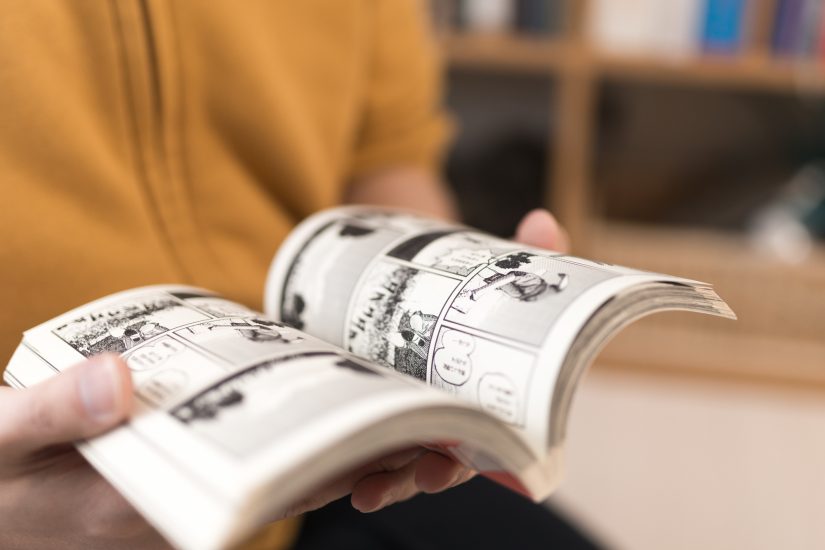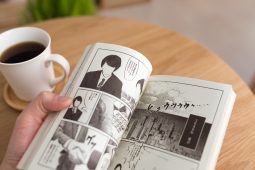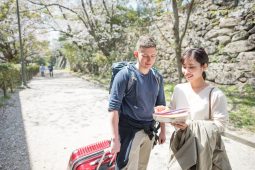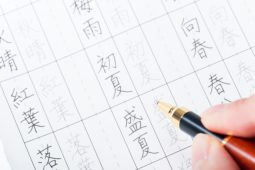This is the second part of an interview with professional manga translator, Kumar Sivasubramanian. In this part, our writer, Michael Lambe, asks Kumar why manga is such a great study resource and which titles he recommends.
ML: Why would you personally recommend using manga for study purposes?
KS: The number one benefit of using manga for language learning is visual context. When someone says, “Have a seat,” and a character sits, that’s much easier than having pure text with no context, which when you’re just beginning can be frustrating or even completely inscrutable. You might argue that the motion of film would provide even more context, and that may be true for aural language, but trying to read Japanese subtitles at speed as a beginner can also be baffling. Manga gives you the visual context but also the ability to set your own reading pace.
ML: What titles, in particular, would you recommend for beginners?
KS: Any manga which uses furigana is a good place to start. And it may be embarrassing, but I recommend kids comics like DORAEMON to start with. Also, even better than kids manga, Google around to see if you can find any bilingual manga. Bilingual manga is the best thing you can get. If you can find them, hoard them. (I think there are current bilingual editions of MIGHTY ATOM [ASTRO BOY] and Sailor Moon at least.) MANGAJIN’S BASIC JAPANESE THROUGH COMICS, if it’s still in print, is a fun and useful book as well. When you’re just starting out you may want to avoid melodramas (lots of emotions and pensive faces, but not much visual context), or Fantasy and SF series. I would flip through some comics and just see what grabs you and also mix it up. Even if you only recognize 1 or 2 words on a page, in the beginning, that’s good enough. Pick up the next comic and do the same, and repeat.
ML: What manga would you recommend for intermediate or advanced Japanese learners who may have previously not considered supplementing their studies with manga?
KS: Once you’re over the kids’ stuff, seek out manga that matches some of your interests or knowledge bases. For example, if you like golf, look for golf manga. If you like post-apocalyptic fiction, go look for FIST OF THE NORTH STAR. You’ll be able to fill in some gaps with your own knowledge, and you may be inspired to keep trying to read it even if the language level is still frustrating.
ML: Your first translation job was Osamu Tezuka’s METROPOLIS. That must have been quite a thrill for you. Can you describe your feelings when you first got that job?
KS: Well, it was my first job, so I obsessed over every word. I counted syllables and tried to match the number and even use English synonyms with similar sound forms. I have never approached a translation like that since, and, to be honest, I’ve never been able to bring myself to re-read it. Because I was so overly obsessed with the mechanics of the translation, the fact that it was Tezuka, the God of Manga, never really sunk in at the time. It was actually my wife who pointed it out to me later and said, “You must have felt honored to translate those books.” And I was like, “Holy Cow! It was an honor!” Looking back now, I’m still in awe. Having them on my resume has also led to me doing multiple Tezuka books with other publishers too.
ML: Do you still enjoy reading manga purely for pleasure – or is it all work-related now?
KS: It was all work-related for many years, but I do still love the reading manga for pleasure when I get the chance, and I’ve been making more of an effort in the last year or two. Leiji Matsumoto’s GALAXY EXPRESS 999 is not available in English, so that’s one I still read in Japanese, as well as everything by Man Gatarou. I read a lot of manga in English though – Takehiko Inoue’s REAL (about wheelchair basketball), BAREFOOT GEN… My son (age 11) has also started reading every Shonen Jump title he stumbles across, so I’ve got my nose in those too. I’m also lucky in that for me, often work is a pleasure and a series like I AM A HERO is something I am equally as happy translating as I am reading.








